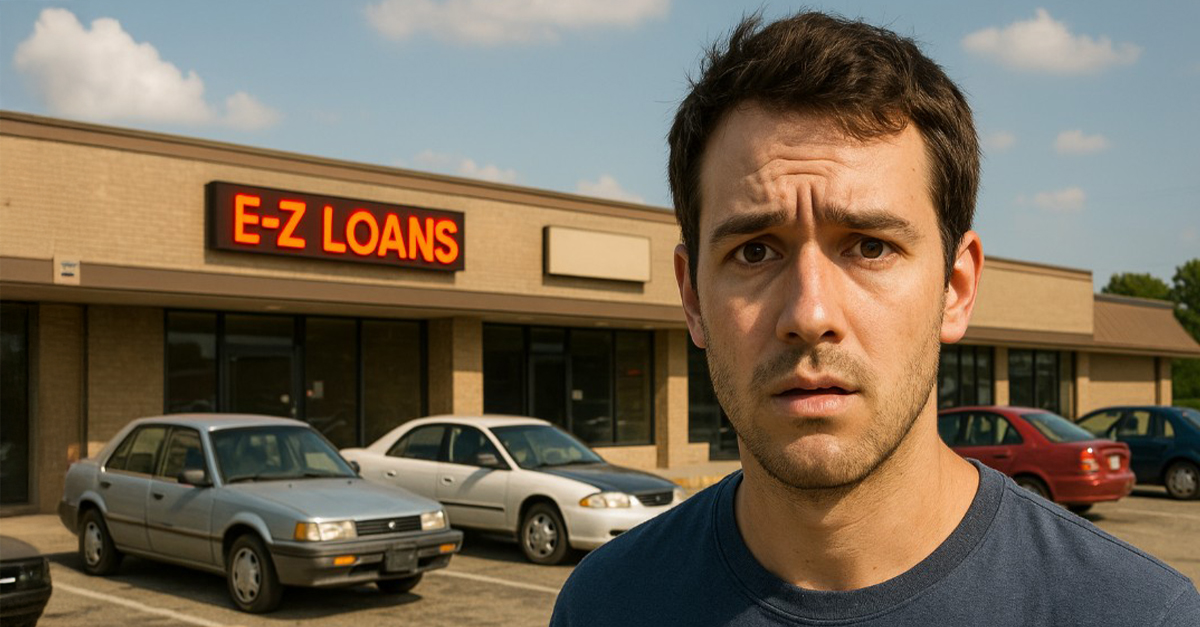Your first payday loan was supposed to be just a one-time quick fix to cover an emergency expense. But the interest was crazy, and when repayment time came, you weren’t ready. Then you took out another payday loan. Now fees are spiralling, your paycheck evaporates as soon as it lands, and you’re stuck on the hamster-wheel. It might seem hopeless, but you still have some options open.
Knowing The Payday Loan Trap
Payday loans often come with triple-digit annual percentage rates (APRs), so they’re extremely difficult to repay in full on time. The Consumer Financial Protection Bureau (CFPB) says more than 80% of payday loan borrowers either renew or reborrow within a month, and the debt spiral is off and running. The “convenience” of fast cash is suddenly a financial sinkhole devouring all your income.
 Photo By: Kaboompics.com, Pexels
Photo By: Kaboompics.com, Pexels
Just Stop, Even If It’s Painful
The toughest step is the simplest, but also the most important: stop taking out new payday loans. It might seem impossible, but constantly rolling over debt only makes the situation worse. Every new loan just makes you sink deeper down into the quicksand. Focus on breaking out of the cycle by paying off your existing debt, even if you have to cut back hard or find help.
Make A No-Nonsense Budget
Track every last dollar coming in and going out. Zero in on anything non-essential: subscriptions, dining out, even gas for unnecessary driving. It’s all got to go. Redirect every possible dollar to your debt. Will it be fun? Nope. But putting basic needs like rent, utilities, and food at the top of the list will give you the breathing space to tackle your loans. It’s really your only option.
Contact Your Lenders And Negotiate
Some payday lenders may offer extended payment plans (EPPs), especially if you’ve made a habit of borrowing from them. Contact them directly in writing, and let them know you can’t continue the loan cycle. Ask if you can spread payments over time without added fees. Be honest, but firm. Not all lenders will want to work with you, but many are more flexible than you’d expect, especially once they realize they may not get repaid.
Talk To A Credit Counselor
Nonprofit credit counseling agencies can help you get organized, design some semblance of a repayment plan, and maybe consolidate your debts into a manageable monthly payment. The National Foundation for Credit Counseling (NFCC.org) is a trustworthy place to start. Counselors won’t judge you; trust us, they’ve helped people in way worse situations than yours. They can also advocate for you with creditors.
Is There A Better Game In Town?
Some credit unions and community banks offer small-dollar loans with lower interest rates as an option. If your employer offers paycheck advances or hardship programs, look into those ideas as well. Even borrowing from a trusted friend or family member can be safer than another payday loan, but that’s only if it’s handled respectfully and with a clear repayment plan.
Seek Out Legal Protections And State Resources
Depending on your state, you could have legal protections that limit what payday lenders can do. Some states cap interest rates or ban payday lending outright. Check with your state’s attorney general or financial regulator. It may be a long shot, but see if there are any local nonprofits or social services offering emergency grants, food assistance, or utility relief, so you can free up more income to tackle your debt.
Debt Management Or Consolidation Loans
If you have a steady income and your credit score is still okay, a debt consolidation loan with a bank or online lender could replace your payday loans with a single lower-interest monthly payment. It’s important to read the fine print with these, though. Some predatory lenders disguise themselves as consolidators. Use sites like NerdWallet or Bankrate to find vetted options.
Stay Focused On The Long-Term Goal
Extricating yourself from the payday loan trap isn’t an overnight process, but it can be done. Every dollar you don’t borrow is a step in the right direction. Every payment toward the principal is progress. Stay focused on taking back your financial independence. It’s okay to make a mistake, but if you’re serious about fixing the situation, it’s only a matter of time before you’ll be back on your feet.
You May Also Like:
The Biggest Money Mistakes To Avoid In Your 30s
10 Hidden Expenses That Are Draining Your Wallet Every Month










